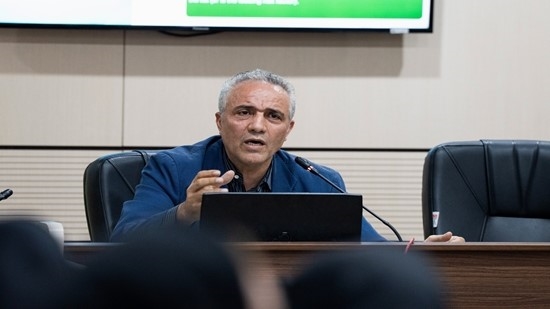Disasters are multifaceted, yet is our perspective still one-dimensional

Disasters are multifaceted, yet is our perspective still one-dimensional
The Head of the Department of Health in Disasters and Accidents at the University of Social Welfare and Rehabilitation Sciences, with an emphasis on the multifaceted nature of disasters, stated: Iran, with 53 priority hazards and its unique climatic conditions, needs a comprehensive and multi-faceted approach to disaster management, and a single-dimensional view of events such as floods and earthquakes will no longer be effective.
According to a report by Dr. Hamidreza Khankeh, the Head of the Department of Health in Disasters and Accidents at the University of Social Welfare and Rehabilitation Sciences, during the World Environment Health Day symposium, disaster management must be multi-dimensional. It should not be unilaterally focused on a single issue like floods or earthquakes.
He stated that Iran is a disaster-prone country and added that 53 priority hazards have been identified in the country. This indicates that, due to climatic conditions, geographic environment, and existing vulnerability, Iran experiences a diverse range of hazards, placing it among the most disaster-prone countries in the world.
The Head of the Health in Disasters and Accidents Research Center referred to the center’s programs and actions, saying that developing the national baseline scenarios for Iran’s health system, designing a set of national tools for hazard assessment and indicators of specialized capacity in the health sector for accidents and disasters, writing a health in accidents and disasters syllabus, examining the role of environmental management in reducing disaster risk, and drafting a hospital preparedness plan are part of the center’s major activities in recent years.
Dr. Khankeh, referring to demographic and global changes, stated that a decline in overall fertility, increased migration, and shifts in global approaches have made the disaster situation more complex. Therefore, disaster management must be multi-faceted and integrative.
He highlighted the critical role of the public in reducing disaster risk, saying that involving people in knowledge production, public awareness, and access to precise data are essential for effective crisis management. One major challenge for researchers is the failure to account for the burden of diseases and the costs of pollution, which hinders evidence-based policymaking.
He emphasized that all research must be evidence-based, reliable, and reproducible so that it can inform sound policymaking. In many cases, policymakers must rely on scholarly outputs, and researchers must provide legitimate and citable scientific evidence to decision-makers so that we witness effective, reality-based actions in disaster and accident management.


نظر دهید